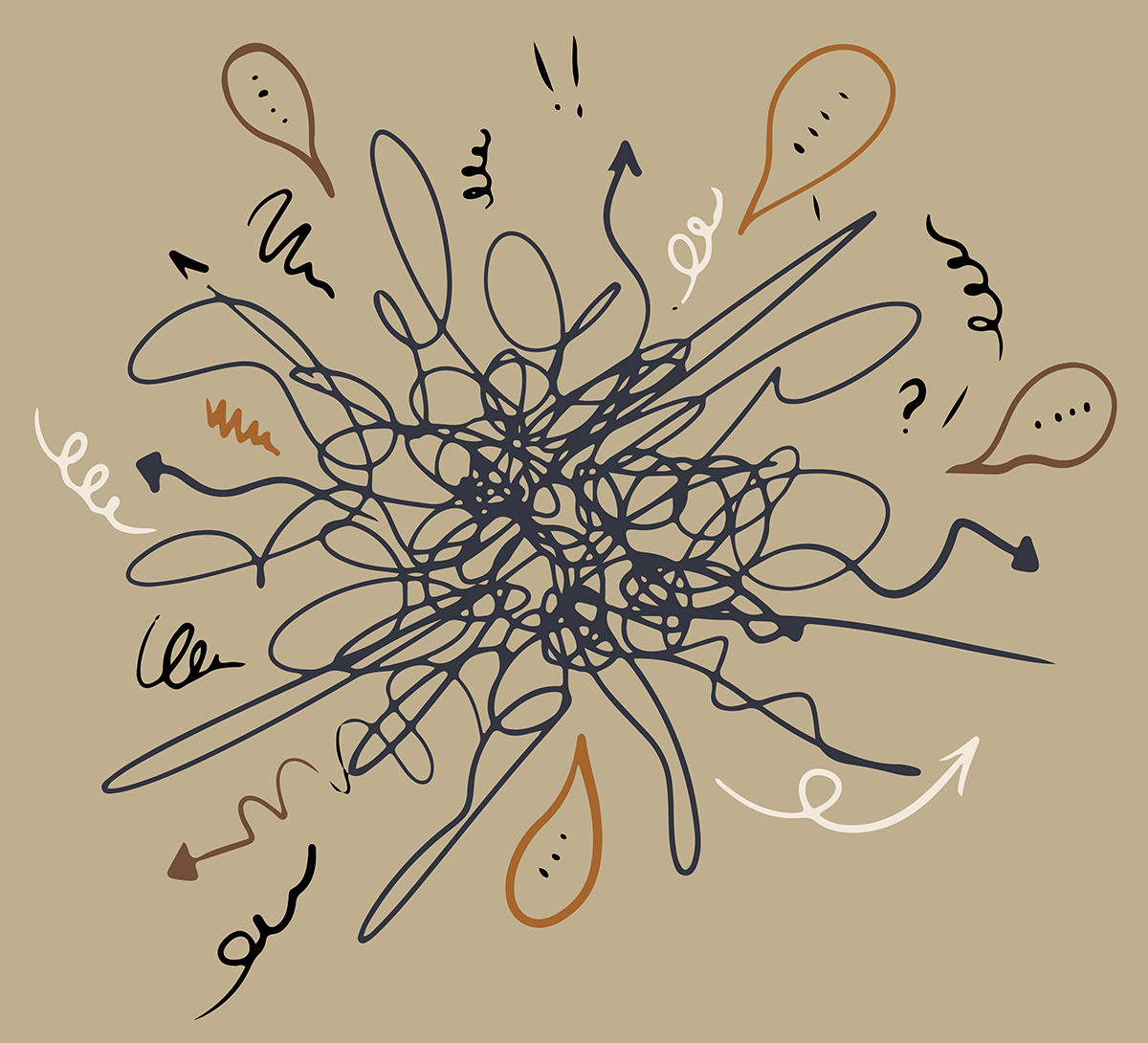Frustration is rising among my friends, colleagues and fellow church members. From congregations and pastors, I hear about smaller numbers of people attending worship on “regular” Sundays, even if “special” Sundays are overflowing. I hear complaints that sermons are too political or youth groups are not active.
Churches are not alone in experiencing this tension. Across multiple industries, bosses are unhappy about remote employees, despite their organizations’ policies allowing staff to work from home. Winners and losers of elections seem nearly equally exasperated.
If frustration is becoming widespread and normal, should decreasing its level be a goal? Or should we try to channel some of the frustration-driven energy into something productive? Could we do both?
By nature, I don’t enjoy frustrating people. In my years as a consultant, I have learned that frustration can damage relationships and destroy common work. But at the same time, frustration — a marker of conflict — can be a catalyst for positive change.
While the first impulse is to understand the source of frustration, such understanding results in only modest progress. In this moment, what I am observing is fueled by multiple forces, many of which are outside the control of the frustrated people or their organizations.
It can be more helpful to attend to the emotions that are mixed into frustration. Many of the feelings are triggered by a loss. For example, the time and effort put into an activity no longer results in people attending or giving.
Anger is a common response to grief at a loss. The less personal the loss, the less intense the response of anger or frustration, and the more quickly it is focused on someone else. Think about the impact of a losing season on fans of a football team — especially a team with a long history of winning championships. How quickly do they focus frustration on the referee or maybe the coach?
Those more accustomed to a losing team, meanwhile, may come to deny the importance of winning. Their frustration looks like passivity that might even appear to be acceptance. A clue to the underlying and ongoing frustration surfaces when their team upsets a rival to win. The frustration energy unleashed looks like a championship victory celebration. The gloating is short-lived but intense.
In congregations where frustration is moderate and ongoing, I often see a longing to return to the past. Some want a pastor who will act like the pastors of glory days. That might mean a clergyperson who goes door to door in the neighborhood or preaches fiery sermons or recruits young people. Others simply long for the days when the education building was full of children or the youth choir sang in worship each Sunday night.
The complexities of nostalgia are not new. When Moses was leading the Israelites in the wilderness, the journey was grueling, and those escaping enslavement wanted to return to Egypt, the home of the slave masters. At least there they’d had better food. But the past was much brighter in memory than in reality. They seem to have forgotten why they cried to God for rescue.
Underlying any frustration can be fear, which often looks like complaining with no action. It is a form of helplessness, a kind of loud paralysis — lots of talk without much accomplished.
Learning to deal with disappointment is part of maturing. My three preschool grandchildren are still learning. I can bear witness to uncontrollable crying over a seemingly random disappointment. If the preschooler is tired, the time required to restore calm is multiplied, no matter who is doing the comforting. Eventually, humans develop some self-control.
Any of us can react strongly when overcome by frustration. What does moving through these responses in a productive way look like?
One critical step is calming down. Realistically, that often begins with a few people. I sometimes wonder whether calmness is a spiritual gift. Whoever is calm needs a chance to be heard by others. Calmness can spread if it is shared with a focus on kindness mixed with opportunities for action. The combination of deeply listening to the feelings of the frustrated and considering the conditions in the community with a view to what could be done next can help others move from being stuck to accomplishing things.
In a difficult situation, when conditions can change rapidly and one is not in control of all the variables, momentum is crucial. Having a long-term plan is good, but accomplishing something meaningful in the short term is better. If energy and time are limited, I favor starting with small, faithful steps and following the energy that emerges.
This sort of leadership is improvisational. It requires responding to what is happening and keeping the action moving. The vision of faithfulness to God’s promised new creation is vital. With such an intentional focus, we are very likely to be joining God’s Spirit in work in the world.
These things are easy to say but difficult to do. Frustration is contagious, and it takes focus and energy to express care for that while remaining calm. I don’t know anyone who does that 100% of the time. The same is true of responding to those with a dark and fearful view of the world. These days, people make plenty of money promoting fear. It takes support to maintain hope in these circumstances.
In the face of frustration, what are your sources of hope? To whom do you go to be recharged with a vision for the future? Who in your community is calm? Who sees opportunities to take additional concrete steps toward your congregation’s mission?
Aligning yourself with others who share your frustrations is part of community. Unfortunately, it also contributes to the polarization we are experiencing. If you are in a community whose frustrations are at cross-purposes, you are on the front lines of current tensions in our society. Being calm and identifying the next most faithful steps requires more support in such circumstances.
A first step might be to gather those in your community that exhibit one or more of the responses I have articulated. They need to hear each other, and you need each other.
Churches have experienced frustration between participants from the earliest days of Acts. Fortunately, a vision for the future is provided in the life, death and resurrection of Jesus and the new creation God promises. That vision is the foundation on which we can build in all circumstances, even when we are frustrated.
In congregations where frustration is moderate and ongoing, I often see a longing to return to the past.





















